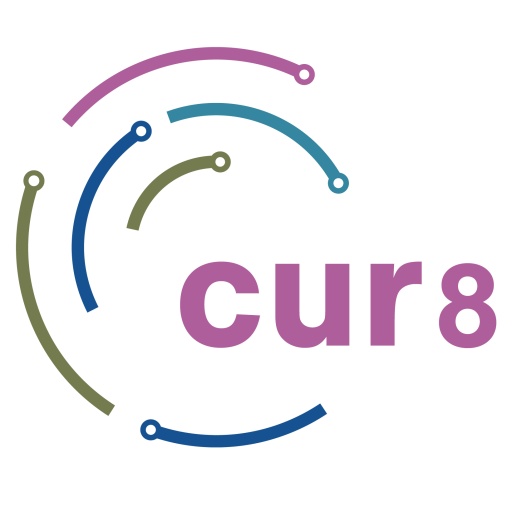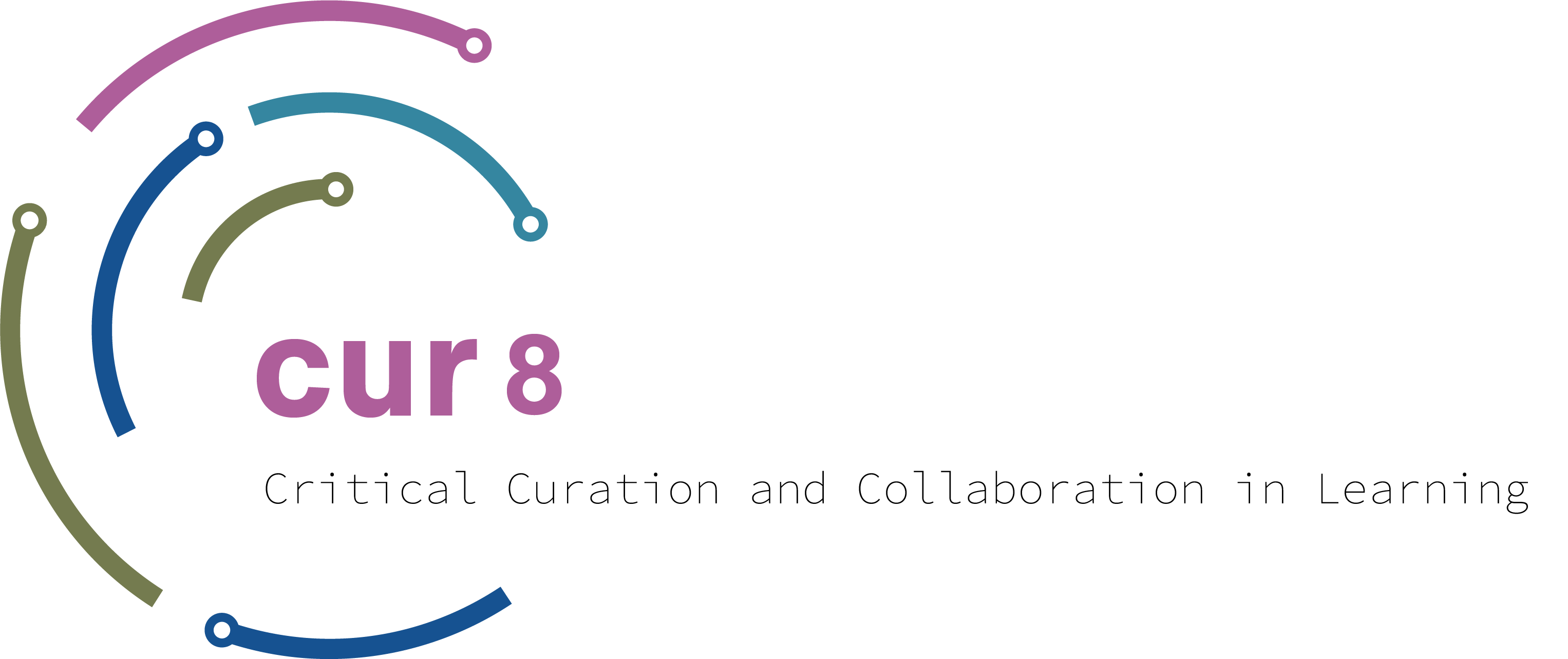Our Approach
Despite the increased role of digital curation tools and platforms in the daily life of social network users, little attention has been paid to the competencies and dispositions that Educators and Trainers (and adult learners) need to develop in order to effectively use digital technologies to curate learning content for themselves and others.
Adult Educators are increasingly confronted with the challenge of creating and managing digital content to enhance learning effectiveness. Within the context of developing and delivering Blended Learning, Collaborative and Self-Directed Learning programmes for Adult Learners, Cur8 will focus on applying Critical Digital Literacy skills to learning content.
Curation is the means by which valuable Open Educational Resources (OER) and other forms of informal /non-formal learning resources can be found, evaluated, organized and shared. Typical curation techniques for blended learning and self-directed learning include content aggregation, a distillation of most relevant sources, identification of topical trends, fusing of study materials from different perspectives to offer a fresh perspective, or organization of the materials according to a customised curriculum. This changes the skills of adult educators from being the ‘sage on the stage’ (creating and presenting learning), to a ‘curator-concierge’ model - directing learners to excellent existing learning content. This is a shift in mindset as well as skill set.
Fundamental to this approach is the use of Critical Digital Literacy skills - skills that are needed in order to aggregate and filter relevant content. In simple terms, they make the difference between someone who can enter a search term into Google and someone that understands the importance of advanced search and filtering, in bringing back relevant content and then in organising and creating Mashups to meet the specific needs of learners.
Critical Curation, therefore, plays an essential role in the learning process and serves as an important digital literacy requirement for knowledge workers. It occupies a central position in the ‘meaning-making' process in a digital age (Betts & Payne 2016). Positioning Curation as an element of Critical Digital Literacy further enriches current conversations about digital literacy and educational technology.
Critical Curation offers the opportunity to source learning content in dynamic, learner-centred and socially interactive ways in order to support an inquiry-based pedagogy. It is relevant to both Educators AND learners who, through the Cur8 project will be encouraged to become digital curators who not only consume information that they find on the internet but also evaluate and synthesize it to meet learning needs.
This project addresses the urgent need to update the digital competences of Educators through an innovative Train-the-Trainer format aimed at:
- Providing adult educators (direct target group) with useful skills and action-oriented methods on how to develop their own and adult learners’ critical digital literacy skills for learning and learning content creation
- Enhancing the digital and self-directed learning competences of adult learners (final beneficiaries), especially knowledge workers and people with disadvantaged backgrounds
- Thus increasing the use of digital technologies by adult educators, especially through the application of critical digital literacy skills, content curation and collaborative learning techniques.
Clearly, this undertaking must be a transnational one, as all European countries are faced with the same digital competence challenge among Educators and Adult Learners (ref.DigCompEdu 2017).
The main outputs will continue to be offered online after the end of the project and designed in a way that makes it easy for learning and development professionals to apply the Cur8 training in different CVET/VET contexts.
The Critical Curation and Collaborative Learning (Cur8) Partnership
The partnership is led by Apricot, United Kingdom, and has experienced Education and Training organisations and HR consultancies from Germany, Austria, Bulgaria and Sweden as project partners.

